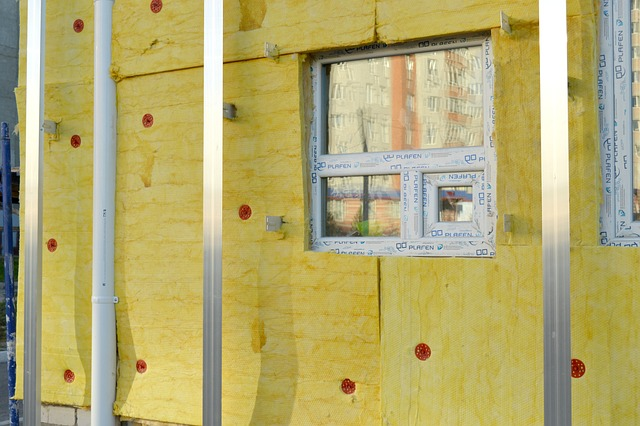Are you noticing moisture on the inside of your aluminum windows?
It might be more than just a nuisance – this “window sweating or window condensation” could be a sign of a bigger problem. It’s not only unsightly, but it can also lead to mold and mildew growth, causing potential health hazards.
During the colder months, it’s common for windows to develop condensation on the inside. This is especially true for aluminum windows, which are more prone to sweating due to their conductivity.
You might be wondering why your windows are sweating in the first place. Well, it’s all about the difference in temperature between the inside and outside of your home. When it’s cold outside and warm inside, the moisture in the air inside your home condenses on the cold surface of your windows.
But don’t worry, there’s a solution!
In this article, I’ll be sharing some easy and effective ways on how to keep windows from sweating, so you can enjoy a warm and cozy home without any added humidity.
What is window condensation or window sweating?
Windows condensation, also known as windows sweating, is a common problem that occurs when the temperature inside a home is warmer than the temperature outside. This causes the moisture in the air inside to condense and form droplets on the surface of windows. The droplets are formed when the warm indoor air comes into contact with the cold surface of the windows, which causes the moisture in the air to condense and form droplets. This phenomenon i.e. interior window condensation can occur on both single and double-paned windows, but it is more common on single-paned windows.
Similarly, exterior window condensation also occurs due to temperature differences, but this time it involves the temperature outside of the home being warmer than the air inside. This causes the excess moisture in the air outside to condense on the outside of the window glass, leading to wet spots and droplets forming. Exterior condensation on windows is also known as fogging, and usually occurs on storm windows.
The musty smell that often accompanies windows condensation is usually unpleasant and makes the home feel damp and uncomfortable. Additionally, the droplets of water that form on windows can cause damage to window frames and sills, as well as to the window treatments, such as curtains and blinds.
The role of warm air and cold air in window condensation
The warm air holds more moisture than cold air. When warm, humid air comes into contact with a cold glass surface of the window, the moisture in the air condenses and forms water droplets on the surface. The warmer the air inside the building, and the colder the window, the more likely it is for condensation to form on the window.
What are the causes of window condensation?
There are several causes or factors that lead to window condensation. The following are some of the most important factors that contribute to the problem:
Poor insulation
Poor insulation is one of the main causes of window condensation. When the insulation in a home is inadequate, the outside cold air can easily penetrate through to the warm interior and cause condensation on the windows. This is due to a phenomenon called the dew point. The dew point is the temperature at which the air becomes saturated with water vapor and condensation occurs.
Moreover, aluminum frames of windows are a good conductor of heat, which means that they can transfer heat quickly from the inside of a building to the outside or vice versa. When warm air inside the room comes into contact with the cold aluminum frames of the windows, the warm, moist air reaches its dew point, resulting in condensation on the aluminum frames.
High Humidity Levels
The second most important factor that leads to window condensation is high humidity levels in homes.
When the air inside a home is more humid, it holds more moisture. And when this air comes into contact with a surface that is cooler than the air, such as a window, the moisture in the air will condense on that surface. This is because as the air cools, its ability to hold moisture decreases, causing the excess moisture to turn into water droplets on the window. Two of the main causes of excess humidity inside are showering and cooking. Showering and cooking release excessive moisture inside. Therefore, run bathroom and kitchen fans while showering and cooking to reduce interior condensation on your windows.
Poor ventilation
Poor ventilation is another factor that causes windows to sweat. Poor ventilation occurs when there is not enough air circulation in a home and the air becomes stale and humid. This can result in condensation on windows because the warm, moist air inside has nowhere to go and comes into contact with cold window glass.
Inadequate ventilation can also cause moisture levels to build up in other areas of the home, such as the attic, which can further contribute to the problem.
Single-pane windows
Single-pane windows are more prone to condensation because they lack the insulation of double-paned windows. Single-paned windows also tend to be colder than double-paned windows and are more susceptible to temperature changes, which can also contribute to condensation. The surface of window panes gets cold when coming in contact with cold air. The cold glass then draws the heat and moisture from the air, causing it to condense into droplets.
Window’s location
This might be an interesting factor as most of us are unaware of this factor.
You won’t believe the location of windows can also play a role in condensation. Windows that are located on the north side of a building or near trees and other vegetation are more likely to experience condensation because they are exposed to cooler air. On the other hand, windows that are exposed to direct sunlight will be warmer and less likely to experience condensation.
Additionally, windows located on higher levels of a building tend to be cooler than those on the ground floor, as heat rises.
So, these are the main causes of windows sweating. It is important to identify the cause in order to understand how to best prevent condensation from occurring.
How to keep windows from sweating?
There are several ways to keep windows from sweating. Below are some of the most effective solutions:
Improve insulation
The first step to keeping windows from sweating is to improve the insulation of the home. Upgrading your insulation, particularly around windows, can help regulate the temperature of the window and prevent condensation. Insulating the walls and attic can help to keep the warm air inside the room and prevent the temperature of the window from dropping. Additionally, insulating the window frame itself can also help to reduce the likelihood of condensation.
Winterizing your aluminum windows
Another step that is not only important for preventing window sweating but for also ensuring the longevity of your windows is winterizing them. Winterizing windows involves taking steps to prevent drafts and heat loss through the windows during the winter months. This includes adding weatherstripping or caulk around the window frame to seal any gaps, installing window insulation film or insulated curtains, or adding storm windows. Additionally, it’s important to make sure that the windows themselves are in good condition, with no cracks or broken seals, as these can also allow drafts and heat loss. All of these things can help to keep your windows from sweating.
Increase ventilation
Improving the ventilation of a home can also help to reduce window condensation. Installing exhaust fans in bathrooms, kitchens, and other areas where moisture can easily build up can help to expel humid air and prevent it from condensing on windows. Additionally, opening the windows periodically can help to increase fresh air circulation and reduce moisture levels in the home, which ultimately reduces condensation.
Using dehumidifiers
Finally, using dehumidifiers in high-moisture areas can help to reduce the amount of moisture in the air, thus preventing condensation on your windows. Dehumidifiers are particularly useful in basements and other areas that tend to be more prone to humidity, as they absorb moisture.
Can exhaust fans reduce condensation on windows?
Exhaust fans can help to reduce condensation on windows by removing excess moisture from the air inside a building. Moreover, they also push warm air outside. By venting humid air to the outside, exhaust fans can lower the humidity level inside the building, which can reduce the amount of moisture that is available to condense on windows. However, similar to running ceiling fans, exhaust fans alone may not solve the problem of condensation, as it is often caused by other factors such as poor insulation, high humidity, and air leakage.
By following these steps, you can help to keep your windows from sweating and enjoy a comfortable living environment all year round. Now you know how to keep windows from sweating, let’s move on to a conclusion.
Conclusion
In conclusion, sweating windows in winter is a common problem. The main causes of windows sweating are poor insulation, high humidity levels, poor ventilation, and single-pane windows. However, there are solutions to this problem such as adding weatherstripping or caulk around the window frame to seal any gaps and installing window insulation film or insulated curtains. It’s also important to ensure that the windows themselves are in good condition, with no cracks or broken seals. However, if your windows are in really poor condition, it is better to replace them with thermal break aluminum windows. By implementing these solutions, you can enjoy a warm and cozy home without any added humidity.
Do you have any other questions about window sweating or about your potential window replacement options?
Feel free to reach out; our team will be happy to serve you.
A BONUS read: Planning to Get New Windows? Here’s Why You Should Consider UPVC







